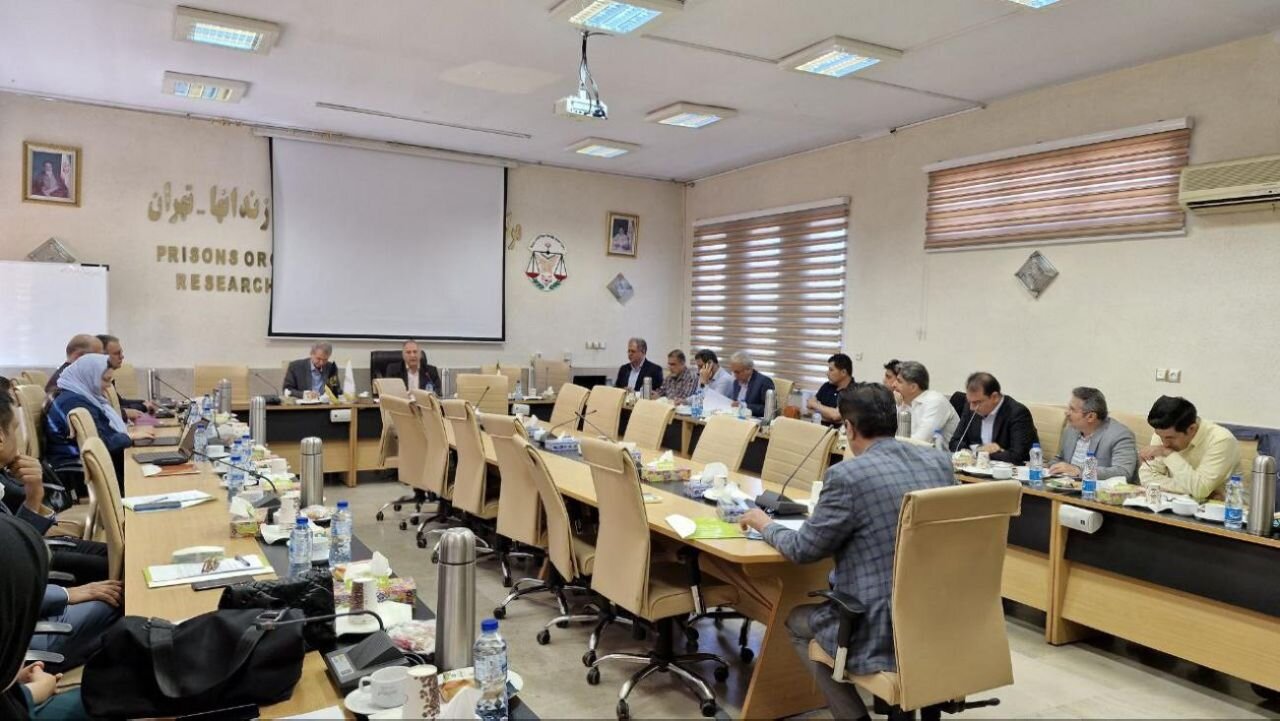Training program held to address drug use among inmates

TEHRAN –The United Nations Office on Drugs and Crime (UNODC) and its national stakeholders including the Iranian National Center for Addiction Studies (INCAS), conducted a two-day training program to enhance ongoing initiatives for addressing drug use issues among inmates.
The Iranian Drug Control Headquarters and the Iranian Prisons Organization also participated in rolling out the program, the UN website announced in a press release on May 28.
Topics covered during the two-day program included rapid HIV testing, evaluation of high-risk behaviors, assessment of quality of life and treatment satisfaction, and an in-depth review of the Addiction Severity Index (ASI).
The United Nations program on HIV/AIDS (UNAIDS) Unified Budget, Results and Accountability Framework (UBRAF) grant, funded the study titled “A Comparative Research Study of Evaluating the Efficacy of Buprenorphine with Methadone Substitution Therapy in Prisons.”
Iran faces a grave challenge in drug abuse, grappling with one of the highest rates of opiate use worldwide, alongside a significant prevalence of amphetamine-type stimulant abuse, the website reported.
In response, opioid substitution therapy (OST) has emerged as a proven intervention, replacing illicit drug use with medically prescribed, orally administered opiates such as buprenorphine and methadone.
While methadone maintenance therapy has been the cornerstone of OST for the past two decades, the introduction of buprenorphine in recent years calls for a comparative research study to gauge its effectiveness in this unique setting.
During the training program, national partners emphasized the alignment of this training with the country’s overarching policies, which aim to diversify the treatment portfolio and promote Buprenorphine Maintenance Treatment (BMT) as a replacement for Methadone Maintenance Therapy (MMT) within prison facilities.
The importance of enhancing the expertise of professionals working with inmates, and facilitating accurate data collection to evaluate the effectiveness of BMT, thereby significantly influencing the country’s treatment roadmap was highlighted.
Alexander Fedulov, UNODC Iran Country Representative, expressed his appreciation for the implementation of this comparative research study on the effectiveness of methadone and buprenorphine maintenance therapies within the prison setting.
Acknowledging the substantial number of inmates benefiting from opioid substitution therapy in Iran, currently exceeding 80,000 individuals, He noted the significance of this research endeavor.
The training brought together experts well-versed in drug use disorders from the provinces of North Khorasan, Kordestan, Khuzestan, and Fars.
This collaborative endeavor between UNODC Iran and its national stakeholders holds promise for advancing Iran’s drug treatment initiatives within correctional facilities and among inmates.
By conducting a comprehensive comparative study on the efficacy of buprenorphine and methadone maintenance therapies, the project aims to enhance evidence-based and informed critical decisions regarding inmate care and the future direction of drug treatment in Iran.
The UNODC works towards advocating for harm reduction programs within the Iranian penitentiary system, specifically targeting individuals with drug dependencies.
The organization promotes a human rights-based, gender-responsive, public health-centered, and evidence-based approach, aiming to eliminate stigma, discrimination, and violence within these facilities.
Cooperation on drug-related crimes
On May 1, the UNODC and the Iranian law enforcement command explored ways to boost cooperation in areas related to drug trafficking and drug-related crimes.
During a meeting between the UNODC representative in Tehran, Alexander Fedulov, and Director General of Iranian Interpol Brigadier General Majid Karimi, the two officials revised the activities under implementation, and discussed the scope and perspective of future cooperation, the UN website announced.
In this meeting, Fedulov briefed the Iranian side on the recent activities and procurements conducted by UNODC Iran under the generous funds received from the UNODC traditional donors.
He reiterated the readiness of the UNODC to delegate technical and procurement support to the Islamic Republic of Iran under the UNODC Iran Country Partnership Program with the Islamic Republic of Iran.
Brigadier General Karimi, for his part, stated that drugs are obviously one of the pillars of the UNODC mandate as reflected in its name, though various topics on crimes could also be addressed by this Office, and inter alia he suggested cooperation to address challenges posed by drug trafficking and drug related crimes.
This meeting was organized as part of the activities foreseen in the framework of sub-program 1 “Border Management and Illicit Trafficking” and sub-program 2 “Crime, Corruption, and Criminal Justice” of the UNODC Country Partnership Program for the Islamic Republic of Iran.
MT/MG
Leave a Comment